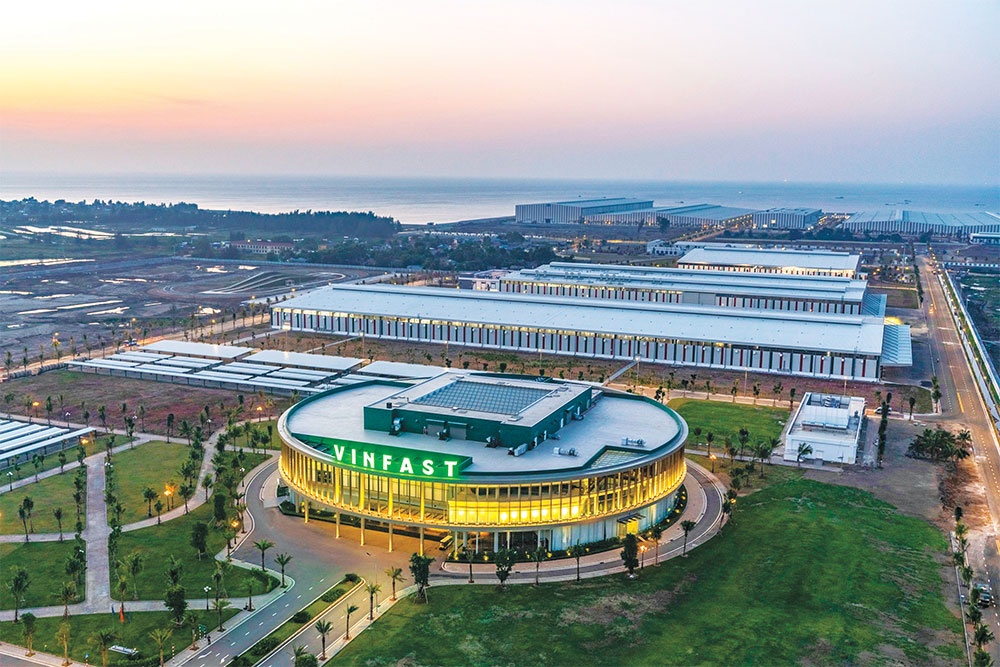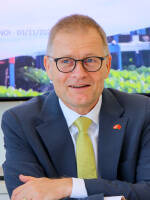
Vietnam is set to reaffirm its commitment to achieving net-zero emissions by 2050 at the upcoming COP28 conference. With less than three decades to meet the target, the government has taken decisive steps to accelerate the green transition, most notably through the issuance of a 2022 decree that aims to reduce 563.8 million tonnes of carbon emissions by 2030 and provides a clear roadmap for action for both governmental bodies and enterprises.
A recent report from PwC reveals that 80 per cent of enterprises in Vietnam have either already implemented or are planning to adopt sustainable practices in line with environmental, social, and governance (ESG) criteria. Despite this, the report highlights a notable gap between pledges and actual implementations, especially when it comes to the initial stages of sustainable manufacturing: investing and building a sustainable factory.
While substantial investment and careful planning are essential, even small steps can lead to significant changes. Drawing from the experience in partnering with businesses striving for green transitions, NS BlueScope Vietnam has outlined three concepts of building sustainable factories for businesses to consider.
The first concept is long-lasting factories. Sustainable factories aim to maintain consistent production performance for businesses pursuing long-term business strategies. A prime example is VinFast, which has built a cutting-edge factory on a 335-hectare plot near Haiphong Port in the north of the country. The facility aims to expand its production capacity to up to two million electric vehicles per year, serving its ambition to become a global brand.
Located just 400m away from the sea, the factory enjoys logistical advantages but also faces significant challenges related to corrosion from the harsh maritime environment. To address this, VinFast Haiphong has developed a sustainable factory using long-lasting materials and has prioritised the use of advanced construction materials that offer robust structure and longevity.
Notably, over 14,000 tonnes of BlueScope steel have been used for roofing and walling, covering an area of up to 1.5 million square metres. Its COLORBOND® steel is unique in featuring a four-phase Activate™ coating technology that offers high corrosion resistance and has proven durability over 20 years of exposure to harsh maritime conditions in Australia.
The second aspect is green factories that focus on reducing carbon emissions while optimising economic and environmental efficiency. These factories require a significant upfront investment, but they represent an irreversible journey that promises attractive long-term benefits.
Specifically, a factory meeting US LEED standards typically requires 1-8 per cent higher initial investment but can save 25-60 per cent in energy costs and reduce utility expenses by 7-14 US cents per sq.m. The payback period is estimated to be 3-10 years, according to consulting firm Enermodal Engineering.
LEED certification is currently the most prevalent green factory standard in Vietnam, accounting for nearly 60 per cent of such facilities. A common feature among these factories is the preference for green materials, including the exclusive use of COLORBOND® steel, certified Green Label by the Singapore Green Building Council.
This steel also features Thermatech® solar reflectance technology, which lowers the surface temperature of metals by absorbing less heat from the sun and helps the project owners earn additional points during LEED assessment.
Finally, the ultimate goal of sustainable factories is to achieve net-zero emissions, aligning with the country’s vision and businesses’ sustainable growth orientation. This model is particularly beneficial for companies exporting to the European Union and the United States, as it may help mitigate future carbon taxes.
Net-zero factories focus on neutralising carbon emissions from various operational aspects, including energy consumption, water usage, and employee transportation. The model emphasises the transition to renewable energy sources. To achieve this, significant investment in solar energy infrastructure is required to provide full self-sufficiency in energy production and consumption.
In addition to these concepts, businesses need to actively implement comprehensive ESG practices to maintain sustainable competitiveness. Being the first steel brand aiming to apply international Responsible Steel standards based on 13 ESG evaluation criteria, BlueScope commits to continue supporting businesses in greening factories, opening a new chapter for sustainable production.
Hoai Nam




